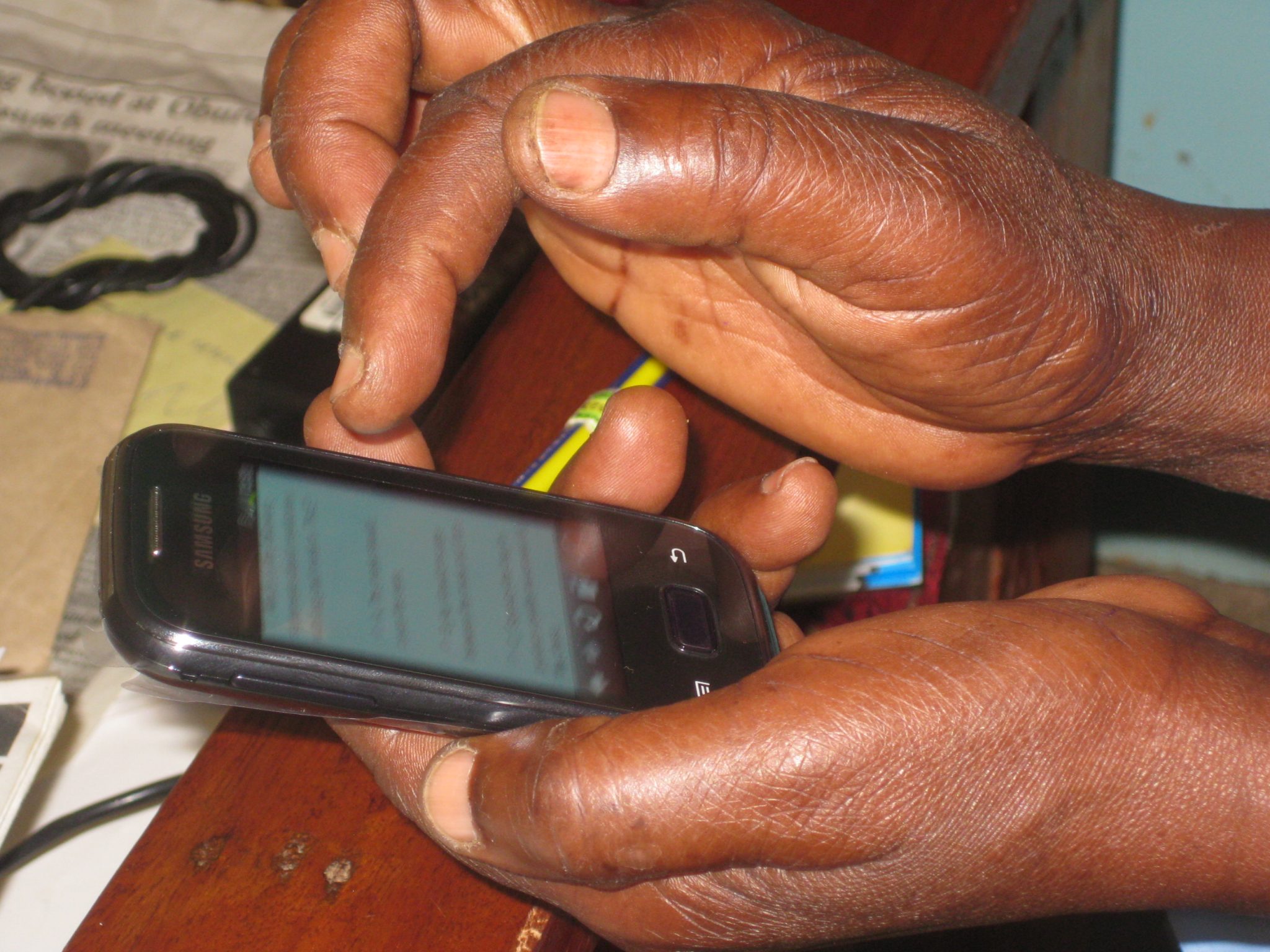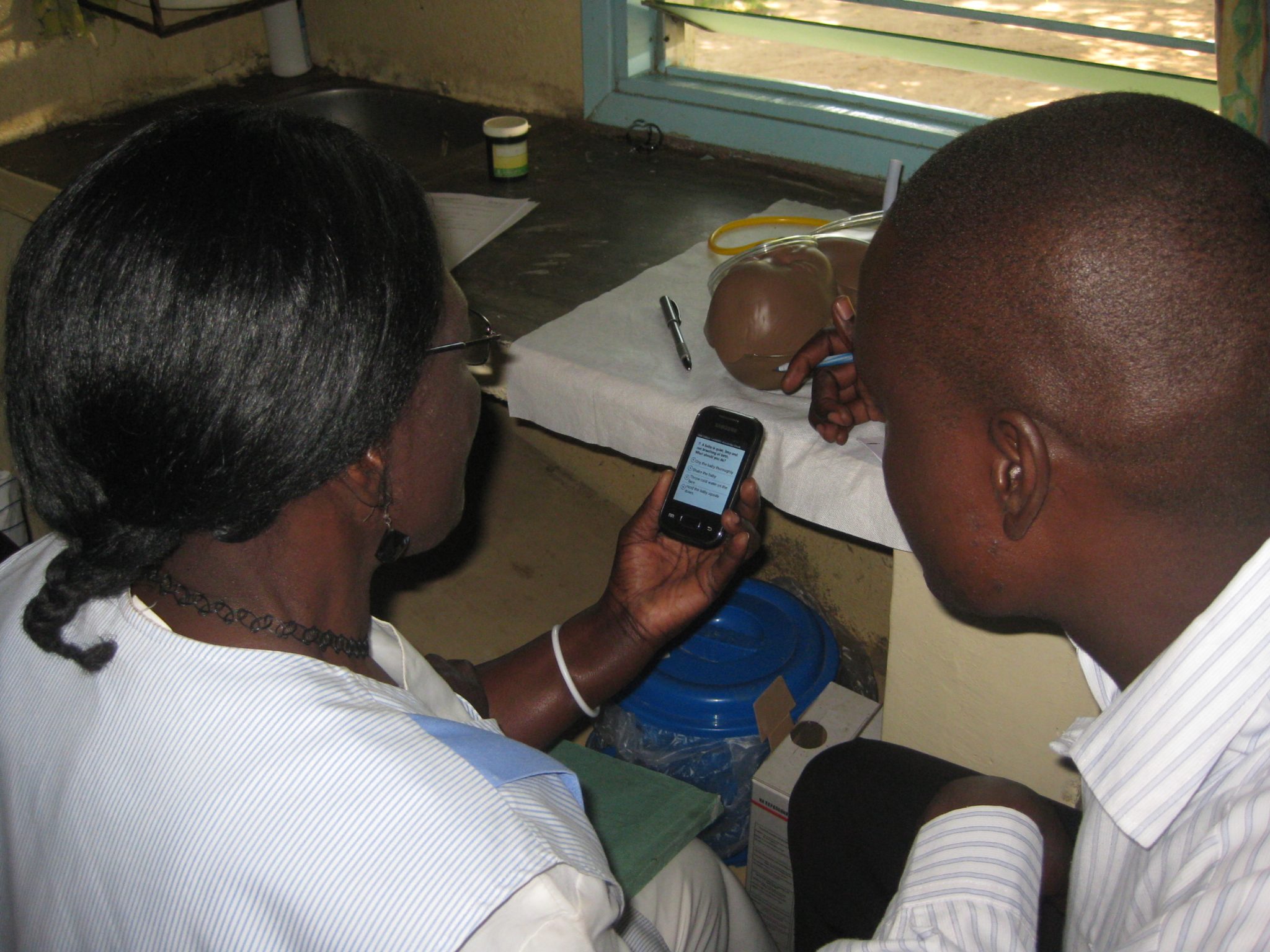Digital health technologies have the potential to improve quality, increase equity in care provision, and lower costs of care delivery in resource poor settings. The WHO recently urged countries in Africa to increase the use of digital health technologies to accelerate achieving these aims. Donor agencies, such as USAID, have made significant investments into digital health projects and there are growing communities of practice around digital health, such as the Global Digital Health Network.
As this field has matured, we have seen a move away from small pilot projects to long-term, sustainable solutions that are changing the way healthcare is delivered and quality is improved. For example, Dr. Sherri Bucher at the Indiana University School of Medicine, has worked for close to a about 6 years to develop a mobile app which supports the Helping Babies Breathe (mHBB) and Helping Babies Survive (mHBS) curriculums. These tools have helped nurses to maintain critical neonatal resuscitation skills and stay up to date on best practices for addressing common causes on neonatal mortality: complications from preterm birth, complications during childbirth, and infections. In South Africa, the MomConnect Program, reaches over 2 million pregnant women with stage-based health information and a mechanism for sharing their experiences in the health system with the National Department of Health. The success of the program has led to the development of NurseConnect, a mobile app to serve as an information resource to nurses.
I have worked for over a decade at the intersection of global digital health and nursing. In the US, I have observed nurses playing critical leadership roles in nursing informatics, such as Chief Nursing Informatics Officers (CNIO) positions in hospitals, leaders of informatics organizations, and editors of informatics journals. On the other hand, I can only count a few of nurses, who hold leadership roles implementing digital health solutions in low-resource settings. This is in stark contrast to the number of digital health solutions where nurses are expected to collect data and manage software when a new digital health technology is implemented. For nurses who are already overwhelmed, under-resourced, and under-staffed, we must make certain that the introduction of digital health technologies does not present an additional burden. The principles for digital development, which are guidance for implementing digital technologies in low-resource settings, calls for implements to design with the user. Beyond just getting nurses input on the design of digital health technologies, we must ensure that nurses are at the forefront of generating ideas and implementing digital health solutions. These solutions should address the day-to-day challenges that nurses face in delivering high quality equitable care. To start, we must build the technical self-efficacy and digital health capacity of nurses in low-income countries. This can be done by including nursing informatics education in pre-service curriculum and ensuring that nursing informatics competencies reflect the needs of nurses in low-resource settings. International Non-Government Organizations (INGOs) and other digital health implementers should include nurses as part of their project teams, particularly for solutions where nurses are the targeted end-user. This willhelp build capacity for nurse-led projects and provide opportunities to add a nursing voice to the implementation of the solution. Finally, whether it’s called digital health, nursing informatics, or health information technology, nurses need to recognize and embrace our legacy as leaders in this field. As many recognize Florence Nightingale as the founder of modern nursing, she is also recognized as one of the first nurse informaticists, because of her use of data to improve patient safety. After all, these tools are should first and foremost, allow nurses to collect and analyze data about the patients they are serving and also provide access to evidence and best practices. With the support and leadership of nurses, we can ensure that digital health technologies provide a mechanism that empowers nurses everywhere by giving us the data and information we need to provide high quality care.

Nurses training on mobile Helping Babies Breathe (mHBB) courtesy of Dr. Sherri Bucher
About the Contributor
Olivia Vélez, PhD, MS, MPH, RN is a nurse informaticist who has completed training in computer science, management information systems, public health, nursing, and biomedical informatics. Dr. Vélez is currently a Senior Digital Health Specialist with ICF where she works on several digital health projects. She was formerly the eHealth Team Lead for the United States Agency for International Development (USAID)’s Maternal Child Health Survival Program, where she led the strategy for systematic integration of eHealth tools to support reproductive, maternal, newborn and child health interventions in low-resource settings. Additionally, she holds an adjunct faculty positions in Nursing at the University of Maryland. Dr. Vélez is an author on over a dozen peer reviewed papers on nursing informatics and has presented her work on mHealth at both national and international venues including the Global Digital Health Forum, the UN Economic & Social Council Partnership Clinic on Mobiles for Midwives, and numerous informatics conferences. Dr. Vélez was a 2010 Jonas Nurse Leaders Scholar and a 2014 Alliance for Nursing Informatics Emerging Leader. She can be reached at Olivia.Velez@icf.com.
